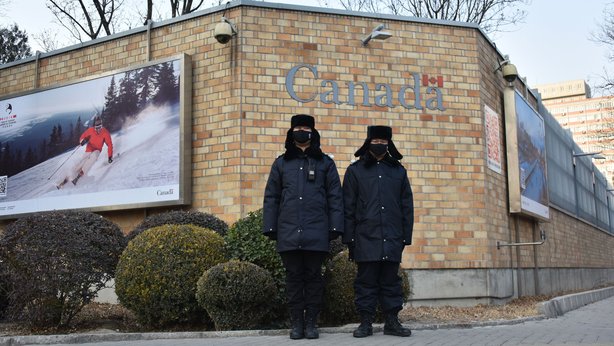China detains two Canadians
December 15, 2018 | Expert Insights

China has significantly upped the ante in its diplomatic standoff with Canada, not just detaining two Canadian citizens.
Beijing is also accusing them of serious crimes and charges that could result in their imprisonment for months with no outside contact.
Background
Canada–China relations, or Sino-Canadian relations officially dates back to 1942, when Canada sent an ambassador to China. Before then, Canada had been represented by the British ambassador. The Communist victory (1949) in the Chinese Civil War caused a break in relations that lasted until 1970 when Canadian Prime Minister Pierre Trudeau became one of the first Western leaders to recognize the People's Republic of China.
Canada is home to a large Chinese diaspora, which affects diplomatic and other dimensions. China is currently Canada's second largest trading partner and Canada is China's 13th largest. Although trade has grown fast during the 2000s, economists view the extent of commerce between the two countries as below potential.
Meng Wanzhou is a Chinese business executive. She is deputy chairwoman of the board and chief financial officer (CFO) of China's largest private company, the telecom giant Huawei founded by her father Ren Zhengfei.
On 1 December 2018, Meng was arrested in Canada at the request of the United States for allegedly defrauding multiple financial institutions.
Analysis
China is currently holding Michael Kovrig, an analyst with the International Crisis Group think tank, and Michael Spavor, who runs tours and promotes investment in North Korea, in “black jails”. They could be held for as long as six months without allowing them access to lawyers or their families.
“Isolating someone in that way for an extended period of time, holding them incommunicado without any oversight, it’s the perfect environment for torture and other illegal treatment of a suspect,” said Joshua Rosenzweig of Amnesty International. “It’s a way to exert physical and psychological pressure to get someone to confess.”
This would give the Chinese government plenty of time to decide how to proceed.
After a Canadian court granted bail in the case that apparently led to the standoff — the arrest of Meng Wanzhou, the chief financial officer of Chinese electronics giant Huawei Technologies — the United States and Canada now have three months to act.
Meng, the daughter of Huawei’s founder, was detained Dec. 1 in Vancouver at the request of the United States, which is seeking her extradition to face charges of violating American sanctions on Iran. She was freed on bail Tuesday while the legal process continues.
China is outraged over Meng’s detention and continues to call for her complete release. But rather than the risk derailing efforts to resolve the trade war with the United States, it is directing its ire at Canada.
Foreign Ministry spokesman Lu Kang confirmed that the two Canadians were detained Monday, Kovrig in Beijing and Spavor in Dandong, on the Chinese border with North Korea.
The Canadian Embassy in Beijing has been informed, he said, but he declined to say whether the two have been allowed to consult lawyers. “I can tell you that their legitimate rights and interests have been safeguarded,” Lu said.
It initially appeared that the men might be held for violating China’s strict new laws governing the operation of foreign nongovernmental organizations. When first asked about Kovrig’s case, Lu said that the Crisis Group was not registered in China and that Kovrig was, therefore, operating illegally.
However, Lu’s confirmation that both men were detained by local departments of the Ministry of State Security on “suspicion of engaging in activities that endanger national security” demonstrated that their cases were much more serious than a breach of the NGO law.
China defines “endangering state security” in broad terms to include criticism of the ruling Communist Party and advocating for the independence of Tibet or Taiwan. It is not in itself a crime but rather a category of offences that include espionage, inciting subversion, treason, separatism and trafficking in state secrets to foreign entities.
In Ottawa, Andrew Scheer, the leader of the opposition Conservatives, said there is a “direct link” between the detentions of the Canadians and the legal proceedings against Meng.
Assessment
Our assessment is that China’s detention of the two Canadians is a reciprocal reaction to the detention of Huawei CFO Meng Wanzhou by Canadian authorities. We believe that despite the 90-day “ceasefire” in the US-China trade war, this will negatively impact the US-China relation further.
Read more:








Comments